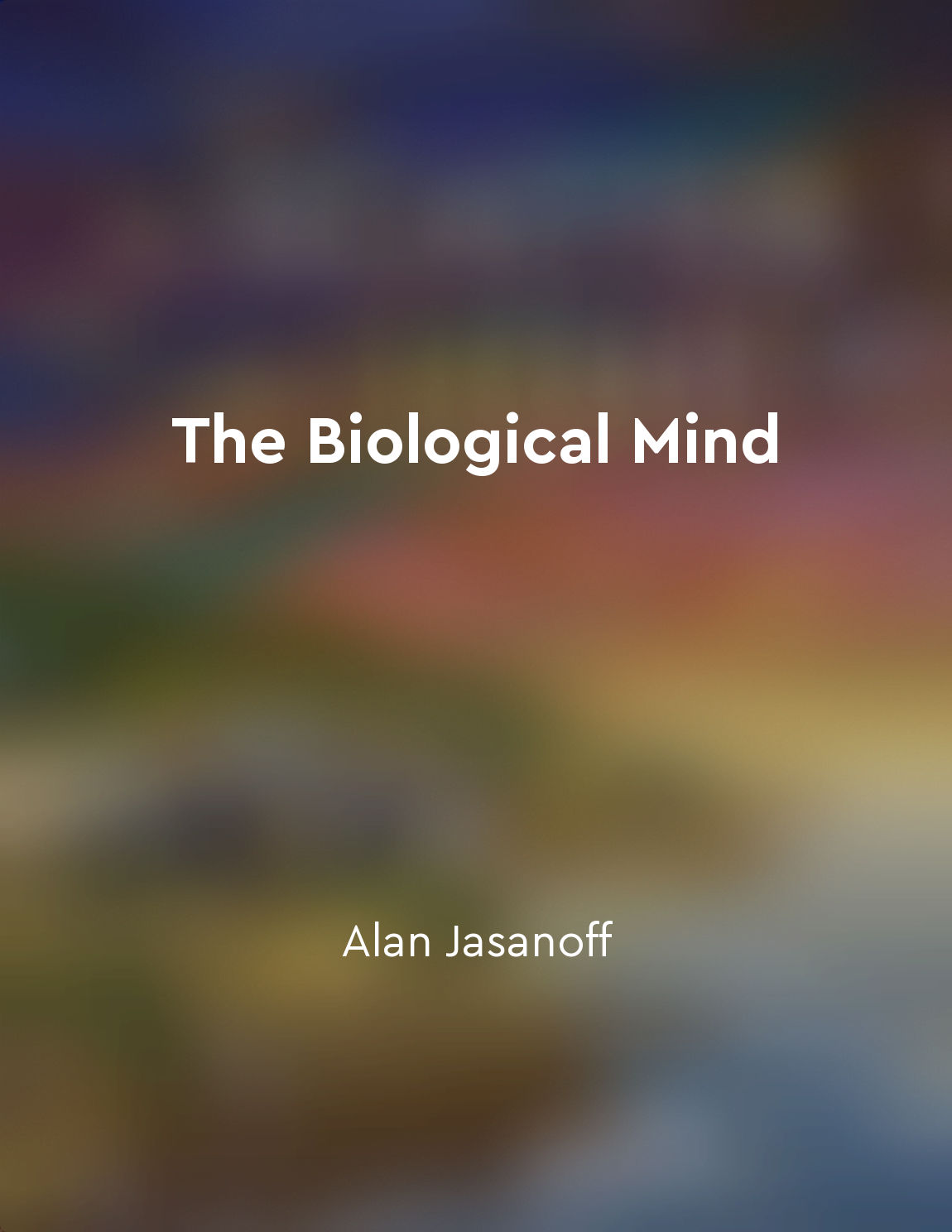Emotions are a result of intricate brain processes from "summary" of The Biological Mind by Alan Jasanoff
Understanding emotions as a product of complex brain activities reveals the intricate nature of our feelings. The brain, a remarkable organ, orchestrates a symphony of neural processes to generate emotions in response to various stimuli. These processes involve a delicate interplay of neurotransmitters, neural circuits, and brain regions working in synchrony. Emotions are not simply whimsical reactions; they are the outcome of a highly organized series of events within the brain. Neurotransmitters, such as dopamine and serotonin, act as chemical messengers in the brain, transmitting signals between neurons and influencing mood and emotion. These neurotransmitters play a crucial role in regulating emotional responses and shaping our subjective experiences. Different neural circuits are responsible for processing specific emotions, such as fear, joy, or sadness. These circuits involve intricate connections between different brain regions that work together to generate and modulate emotions. The amygdala, often referred to as the brain's emotional center, plays a central role in processing emotions, particularly fear and anxiety. This almond-shaped structure is involved in evaluating threats and triggering the body's fight-or-flight response. The prefrontal cortex, on the other hand, is responsible for regulating emotions, decision-making, and social behavior. The interplay between the amygdala and the prefrontal cortex is crucial in determining how we perceive and respond to emotional stimuli. Furthermore, brain imaging studies have provided valuable insights into the neural basis of emotions. Techniques such as functional magnetic resonance imaging (fMRI) allow researchers to observe changes in brain activity associated with different emotions. By correlating brain activity patterns with specific emotional states, scientists can map the neural pathways underlying emotions and gain a deeper understanding of how the brain generates feelings.- Emotions are not ephemeral phenomena; they are the result of intricate brain processes that involve a complex interplay of neurotransmitters, neural circuits, and brain regions. By unraveling the neural mechanisms underlying emotions, we can appreciate the profound complexity of our emotional experiences and gain a deeper insight into the workings of the human mind.


